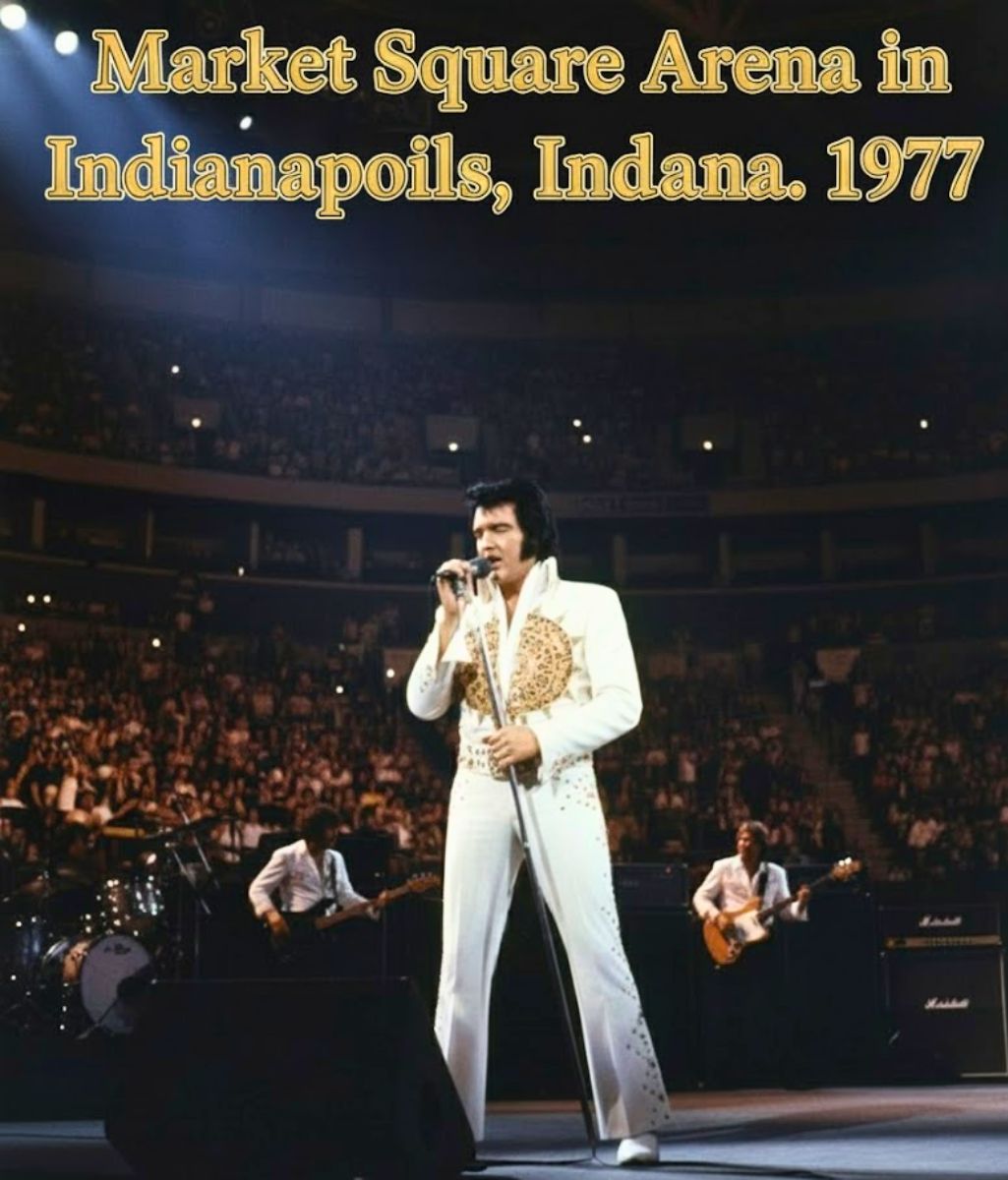
“THE KING’S FINAL BATTLE”: Inside Elvis Presley’s Last Performance — A Night of Strength, Spirit, and History in Motion
By 1977, the man the world knew as Elvis Presley had already become a living legend — a name synonymous with music, charisma, and cultural revolution. Yet behind the lights and applause, there was another side of the story: a weary figure who had given everything to his art, standing at the edge of his own endurance.
In his final year, Elvis was no longer the sleek young rebel who set the world ablaze two decades earlier. His frame had grown heavier, his movements slower, his once-boundless energy tempered by illness and exhaustion. But even as his body began to fail him, his spirit refused to surrender. What the world saw as decline, those closest to him recognized as courage — the strength of a man who would not abandon his gift.
On June 26, 1977, at the Market Square Arena in Indianapolis, Indiana, Elvis Presley walked onto the stage for what would be his last concert. He knew it. The band knew it. Maybe, on some deeper level, everyone in the audience knew it too. Yet that night, something extraordinary happened — a transformation that only true artists can summon.
Dressed in his iconic white jumpsuit adorned with gold and jewels, Elvis took the microphone one final time. His voice, though touched with fatigue, carried the same soul and power that had once electrified the world. Each song became a declaration of defiance — a message that said, I’m still here. I’m still The King.
Witnesses recall that Elvis was completely focused, intent on every moment of the performance. He greeted fans with the same gentle charm, smiled through the pain, and poured himself into every lyric. His rendition of “Are You Lonesome Tonight?” trembled with both vulnerability and grace. “Hurt” echoed through the arena like a final confession. And when he sang “Can’t Help Falling in Love” to close the night, the audience rose to their feet, unaware that they were witnessing history.
After the final bow, Elvis looked out over the cheering crowd, his face a mix of exhaustion and peace. It wasn’t just another show — it was a farewell without words, a closing chapter written in music. Those who were there remember a feeling unlike any other performance he had given: a quiet understanding that this was not the end of a concert, but the end of an era.
In the days and weeks that followed, Elvis returned home to Graceland, seeking rest and reflection. But the legacy of that night — his last public stand — remains one of the most powerful testaments to his character. Even in his most fragile state, he showed what true greatness looks like: endurance, grace, and the will to give his audience everything he had left.
Historians often call this his “final battle,” not because he lost, but because he fought with everything he had. In that single night, he proved that The King was never just a title — it was a spirit, one that could not be broken by time, pain, or circumstance.
When the lights dimmed and the curtain fell, Elvis Presley didn’t just leave the stage; he ascended into legend. His voice, his heart, and his humanity remained — carried in every note, every photograph, every memory of those who saw him rise one last time.
And so, decades later, when fans listen to those final recordings, they don’t just hear a man at the end of his journey. They hear a truth that outlives even death itself: that Elvis Presley, in his final battle, still reigned as The King.
